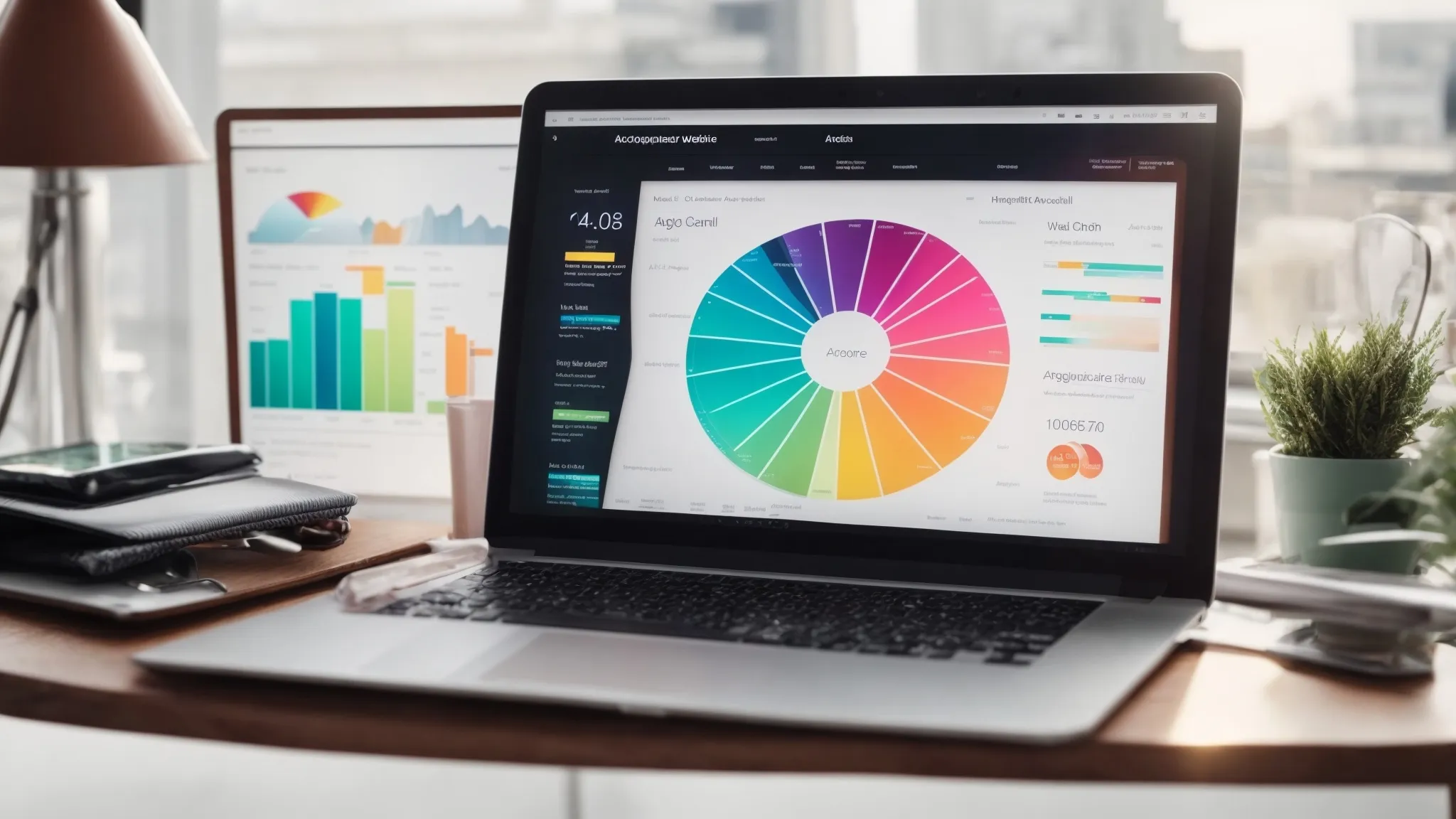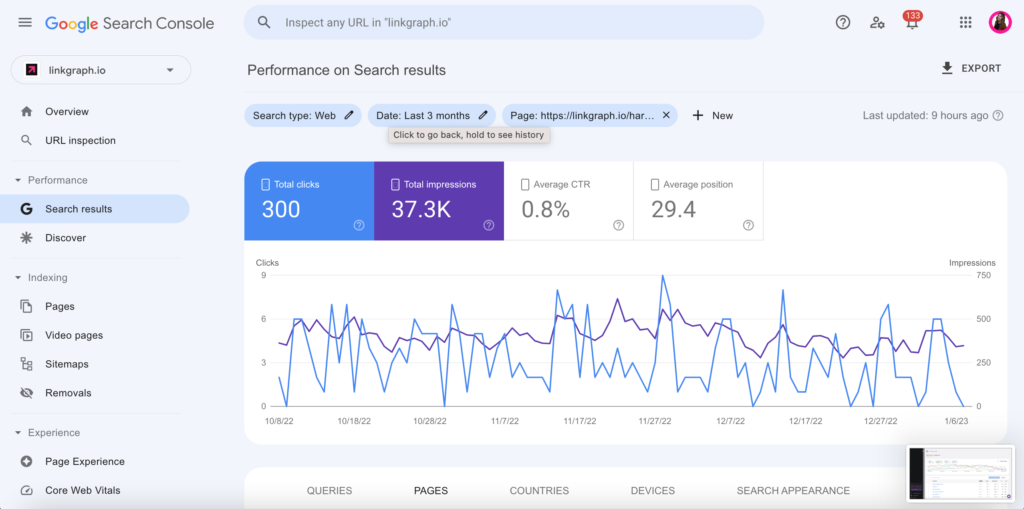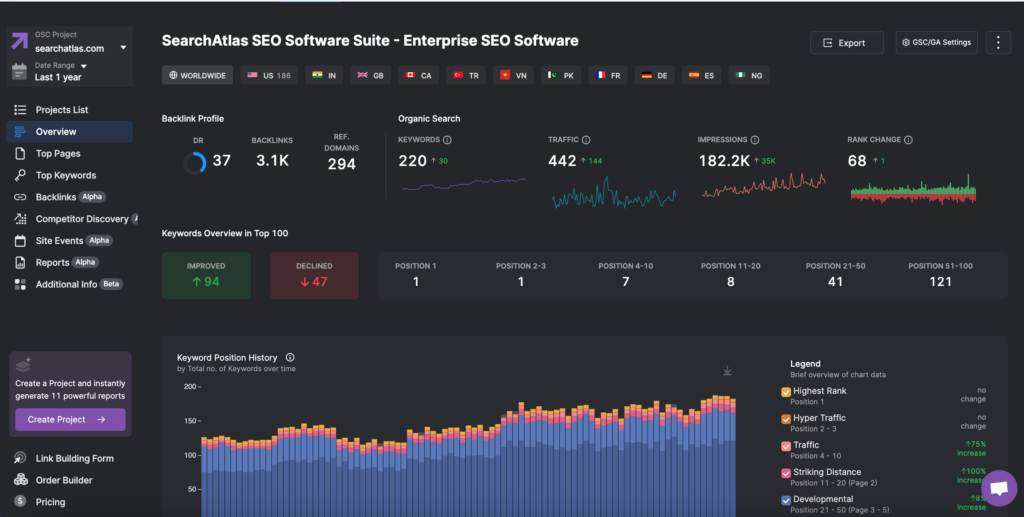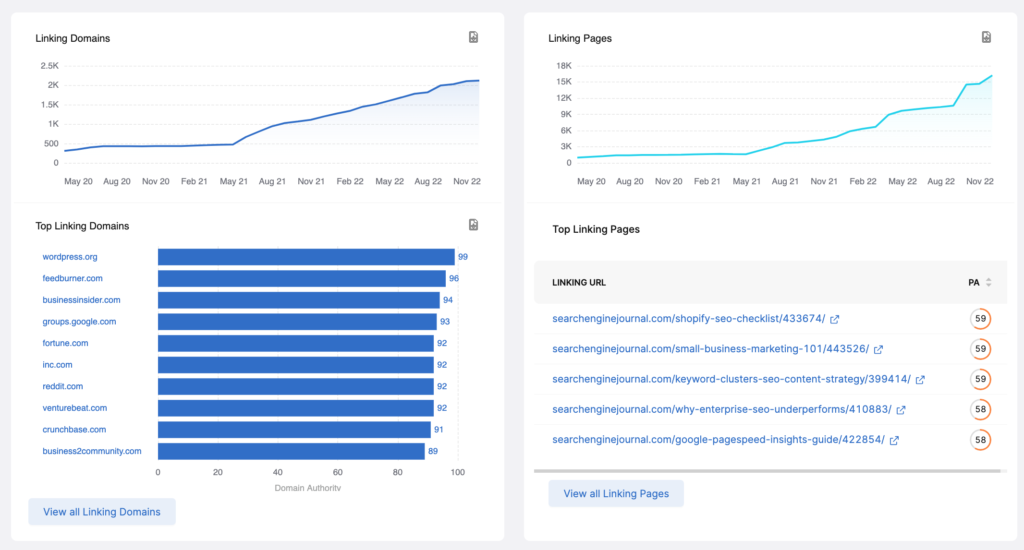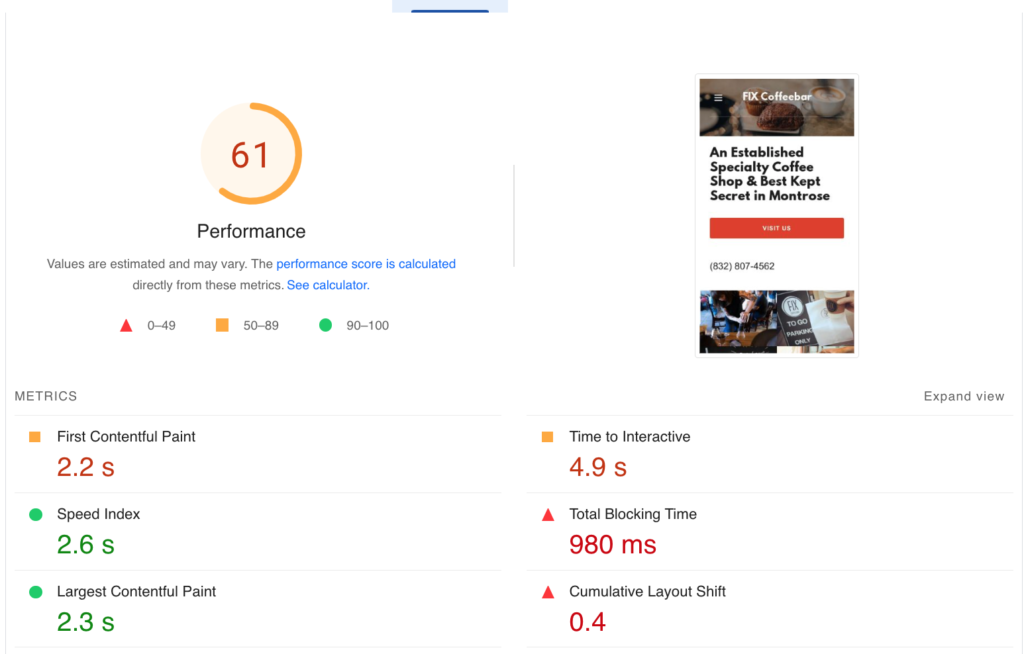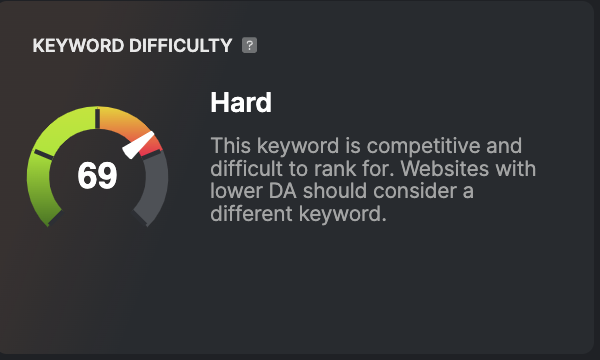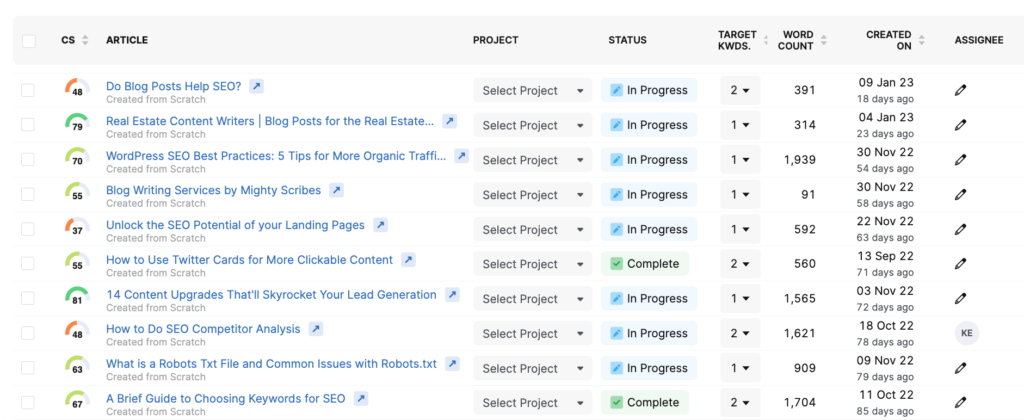How Long Does SEO Take to See Results? The Final Answer.
Search engine optimization (SEO) is essential for businesses looking to increase their online visibility and organic traffic. But how long does it take to see results after […]
Search engine optimization (SEO) is essential for businesses looking to increase their online visibility and organic traffic. But how long does it take to see results after implementing on-page SEO practices or launching an SEO campaign?
Many small businesses and enterprises alike find themselves asking this question when determining whether to invest in SEO. But the answer isn’t always straightforward.
In this article, we will explore the factors that can influence the time it takes to see SEO results.
We’ll also provide some useful tips to help businesses get the most out of their SEO efforts. Continue reading below to learn more about using SEO to your advantage and find out how long it will take to get the best results.
What Does SEO Success Look Like?
Depending on the size and scope of a website and its goals, it can take anywhere from a few weeks to several months to achieve measurable and meaningful results from your SEO campaigns.
To break down SEO success, you’ll want to narrow it down to two major factors:
- Business Goals – Goals refer to what you want to achieve. For example, if you’re hoping to see an increase in sales over a set amount of time, sell more of a particular product, etc., then this can be considered a business goal.
- Key Performance Indicators – KPIs are measurable results that demonstrate progress toward your goal. For SEO specifically, the most important KPIs include total keywords, organic clicks, organic impressions, and higher click-through-rates (CTR).
Usually, KPIs precede goals. For example, after you see a 10 percent increase in organic traffic every month, then will likely see an increase in leads, sales, demo bookings, or submission forms.
Regardless of the answer to the question on how long does SEO take, it’s important to set realistic goals for your business. It’s possible to optimize a website in a way that will make it more visible to potential customers, but it’s impossible to guarantee that a website will be able to achieve a certain ranking or that certain keywords will generate more traffic.
Additionally, Google algorithms are constantly changing and evolving, so it’s important to stay up to date with the latest trends and best practices to ensure that a website is optimized properly. Ultimately, success with SEO is about delivering results that are measurable and meaningful. This can include increased organic traffic, higher rankings for certain keywords, increased conversions, and improved user experience.
For an easier dashboard to display and evaluate SEO KPIs, consider GSC Insights from Search Atlas.
4 Factors that Impact How Long SEO Takes
There are all sorts of factors that can impact how long SEO will take for your particular website. However, all of them can be narrowed down into four primary categories.
1. Content
At the end of the day, content is one of Google’s top ranking factors. Before you can see any organic clicks arrive from search engines, you need to have relevant, high-quality content that live permanently on your website.
What exactly is “high-quality” content? According to Google’s Search Rater Guidelines, high-quality content tends to display E-E-A-T, or experience, expertise, authoritativeness, and trustworthiness.
- Written by experts in the field with first-hand knowledge of the topic
- Explores a topic in-depth and provides answers to users’ questions
- Addressess relevant subtopics that can answer related questions users may have about the topic
These are just a few ways that content can display E-E-A-T. Over time, off-site signals, like backlinks and social signals, can also help elevate the trustworthiness and authority of your content.
2. Backlinks
Backlinks are Google’s #1 ranking factor. The more backlinks that point to a particular webpage, the more likely that page is to rank for relevant search results.
Why? Because backlinks show search engine crawlers that other webmasters are finding the content valuable. You can think of them like references or recommendations, as long as those links come from reputable websites.
Although high-quality content is increasingly important to ranking, it is unlikely your web pages will see organic traffic until they have earned a few backlinks. This is why link building campaigns, particularly at the launch of a website, are so important to driving SEO results faster.
If you’re hoping to get faster SEO results, the more high-quality links you’ll want to get from relevant websites in your industry. High-quality links are more difficult to earn, but they give you a competitive edge in the search engine landscape. Not sure how many backlinks you need? Try this backlink analyzer.
3. Page Speed and Performance
You are also unlikely to start seeing SEO results if your web pages take too long to load or are underperforming for your users.
Google wants to rank fast-loading web pages, otherwise, users are unlikely to rank and will simply bounce back to the SERP results to find a relevant page that loads faster.
Once you have high-quality content and backlinks, you still may not see SEO results unless you invest in some type of page speed optimization service.
Not sure if your web pages are loading quickly for users? Copy and paste your homepage url into Google’s PageSpeed Insights tool and review your results.
4. Industry Competition
How long it will take for your website to see SEO results will depend on how competitive the SEO landscape is for your specific industry. Not all industries, and not all keywords, have the same competitive landscape.
For example, some industries may not have as much competition in the SERPs. This may be because others in the industry have not yet embraced SEO as a digital marketing strategy.
However, those industries where lots of businesses are leveraging SEO are going to face a longer battle to the top of the SERPs.
Thankfully, competition can not only be measured on an industry level, but also on a keyword level. Although your industry might have a competitive SEO landscape, there may be particular keywords that are less competitive with lower Keyword Difficulty scores.
These keywords often have lower search volume but still show strong search intent, but they can still provide great opportunities for your business.
It’s essential that you use the best SEO practices, maintain a consistent publishing schedule for content, keep an eye on your competition, and use top-rated backlinks.
Can I Speed Up My SEO Results?
Now that you know what impacts SEO performance, you may be wondering if there are ways that you can get faster results.
There is no guaranteed timeline for when results can be seen, but generally speaking, there are ways to increase the speed at which your SERP presence grows.
1. Create More Content
The more content that you have on your website, the more opportunities you have to appear in the SERPs.
Creating content to target the many different ways that users are searching for products or services like yours.
Content suite tools like those available in your Search Atlas dashboard can help you generate content ideas for SEO rankings purposes.
2. Invest in Link Building and Digital PR
Because backlinks are so important to ranking, the faster you acquire them, the more likely you are to speed up your SEO results.
Now the caveat to this is that backlinks are only valuable if they are high-quality and come from reputable websites. Any appearance of unnatural link building will not speed up your SEO performance and can actually harm it.
Prioritize backlinks that come from:
- Websites with higher Domain Authority
- Domains with similar topical relevance as yours
- Websites that have strong SEO metrics themselves, including keywords, organic traffic, and organic impressions
3. Launch a Managed SEO Campaign
Having the guidance of a skilled SEO agency to launch and deploy campaigns is a great investment for those websites that want to see results quickly.
Although there are ways to DIY your SEO strategy in-house, outsourcing to an agency that specializes in SEO and operates at scale is essential. Consider saving part of your digital marketing budget for a managed SEO campaign.
Is There An Answer to How Long Does SEO Take?
SEO is a process that requires consistent effort and maintenance, and as show above, different factors will affect how quickly you see results.
Regardless, for businesses looking to gain a competitive edge, SEO can be a great and affordable way to increase visibility and organic traffic for the long term. With the best practices, strategic implementation, and consistent effort, businesses can eventually see their desired results.






